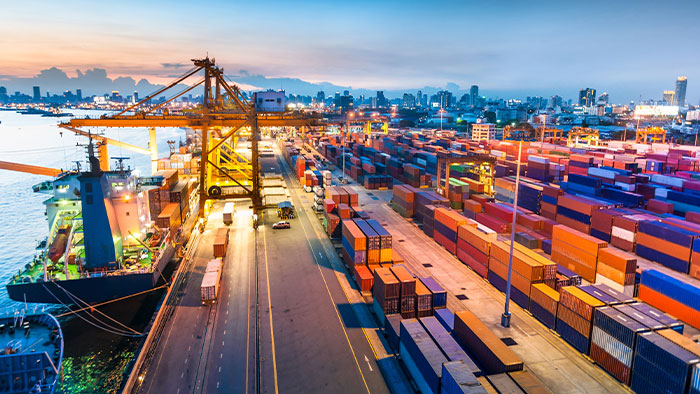Biden Competition Order Highlights Ocean Shipping & Rail
- By [ Jess Dankert ]
- 07/09/2021
RILA has been working to raise awareness and advocate for action on the current retail supply chain issues—including congestion, dramatic cost increases, and anti-competitive actions—and we are pleased to see the Administration taking action to address some of the major challenges.
Shippers are experiencing significant headwinds the supply chain, including:
- Record-high published rates for ocean shipping, and additional fees and charges that represent significant cost increases.
- Delays at origin ports and destination ports, often amounting to several weeks, that add costly time in transit.
- Tight capacity and record-low reliability on carrier schedules and service levels.
- Systemic congestion that has added millions of dollars in detention, demurrage and other fees to companies’ bottom lines.
- Equipment shortages and displacement, effectively stalling imports and exports at virtually all stages of transit.

Two sections of this EO address potential anti-competitive behavior in rail and ocean shipping markets.
Ocean Shipping
The EO directs the Federal Maritime Commission (FMC) to “enforce the prohibition of unjust and unreasonable practices in the context of detention and demurrage pursuant to the Shipping Act.” The Chair of the FMC must also request recommendations from the National Shipper Advisory Committee on how to improve detention and demurrage practices as well as consider rulemaking to improve practices and prohibitions under the Shipping Act.
While the text of the EO focuses significantly on detention & demurrage and does not specifically cite concerns around alliances, capacity, service levels, etc., it does direct the FMC to focus action on anti-competitive practices more broadly. Thus RILA will continue to advocate for broader action.
The Administration cites the significant consolidation within the shipping industry over the last 21 years, noting that U.S. shippers are at “large foreign companies’ mercy.” The Administration also refers to the increase in detention and demurrage charges, but does not address the question of legislation to expand the FMC’s capabilities.
Rail Freight
The EO also encourages the Chair of the Surface Transportation Board (STB) to work with the rest of the board to “consider commencing or continuing a rulemaking to strengthen regulations pertaining to reciprocal switching agreements”, potential rulemaking on competitive access to rail lines, and to ensure passenger rail access is not disrupted or delayed. Finally, in regards to rail line mergers, the STB must take into consideration the public interest when approving or denying these acquisitions.
The FMC and STB will be tasked with implementing policy changes and directives that promote the goals of this EO. As such, RILA will continue to monitor activity and advocate for fair and open supply chains.
For more information please reach out to RILA Vice President of Supply Chain Jess Dankert or Director of Government Affairs Joe Wiliamson.
Tags
-
Supply Chain
-
Transportation and Infrastructure
-
Public Policy
-
Retail Works for All of Us
-
Retail Supply Chain Conference






